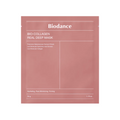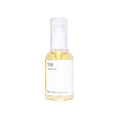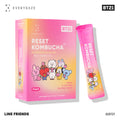Ingredient Focus. 5 Hydroquinone & Arbutin

I am sure many of you already heard about horror stories about hydroquinone from multiple sources, such as “hydroquinone induces skin cancer” or “I have a severe allergy when I apply hydroquinone.” Yes, hydroquinone is a very strong ingredient that inhibits tyrosinase synthesis thus preventing the formation of melanin in melanocytes. In other words, it blocks or slows down the skin pigmentation mechanism.
Because of the potent & strong activity, hydroquinone may induce allergies, irritation and even though the evidence is very limited, it may cause skin cancer. Because of this potential harm, hydroquinone cannot be used in the cosmetics (especially in Korean cosmetics) but you may purchase hydroquinone cream in the form of OTC medicine if the concentration is less than 2%. However, according to multiple researches, statistically significant skin brightening property was proven with relatively higher concentration (around 4%). Even though it is not the safest skin brightening ingredients, Certainly, it is the most researched, effective and fast skin brightening ingredient in the market.
Currently, lignin peroxidase is newly focused as a new skin brightening ingredient but we have very limited researches on lignin peroxidase’s skin brightening property so it is not frequently used as skin brightening ingredient.
Arbutin was first introduced in the market in1990 by Japanese cosmetic giant Shiseido. Back in the day, arbutin was extracted from bearberry.

Nowadays, because of the purity, arbutin is synthetically prepared by adding a sugar molecule into hydroquinone. So practically, bearberry extracted arbutin and synthetically prepared arbutin is practically the same thing. Because the effective part of the molecule is hydroquinone part anyway, so it does not matter what the source is, meaning natural arbutin is not safer than synthetic one. (It does not mean arbutin is an unsafe ingredient, arbutin is generally considered safe.)


<hydroquinone> <Arbutin>
Because arbutin accompanies a large sugar molecule on its arm with glycosidic bond, its molecular size is significantly larger than hydroquinone. So, strictly speaking, arbutin's absorption is somewhat slower than hydroquinone, but several researches demonstrated that arbutin is much less allergenic so arbutin is cleared for a cosmetic ingredient unlike hydroquinone. Arbutin can be safer than hydroquinone but its skin brightening mechanism is from the hydrolysis of arbutin into sugar and hydroquinone inside of our skin, if you are allergic or sensitive to hydroquinone, you should be careful if you use products containing arbutin as an ingredient. KFDA regulation states maximum concentration of arbutin is 5% in cosmetics.

Redergen Super Facial Whitening Cream
Plant extracted arbutin effectively brighten up your skin and safflower seed oil and aloe vera extract moisturizes your skin.

Mediheal : IPI lightmax ampoule mask
Ampoule containing sheet mask with arbutin, betaine and vitamine E deeply hydrates your skin while brighten up the discoloration.

Skinfood – Salmon brightening eye cream
This rich textured eye cream contains arbutin, effective brightens up your dark circle and salmon roe extract and betaglucan makes your eye zone radiant and deeply hydrated.
J Cosmet Dermatol. 2011 Dec;10(4):253-9. doi: 10.1111/j.1473-2165.2011.00581.x. A randomized and placebo-controlled study to compare the skin-lightening efficacy and safety of lignin peroxidase cream vs. 2% hydroquinone cream. Mauricio T1, Karmon Y, Khaiat A.











